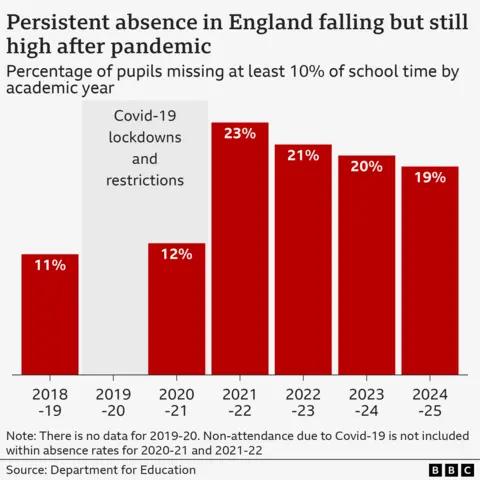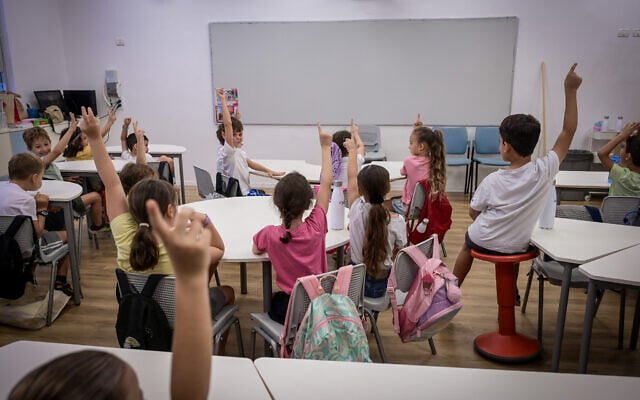Education
UAE’s AI-powered school curriculum: A blueprint for Africa’s education transformation

By Seade CAESAR
The United Arab Emirates (UAE) has once again positioned itself as a global trailblazer, this time by integrating Artificial Intelligence (AI) into its national school curriculum from kindergarten to Grade 12.
This bold initiative, starting in the 2025-2026 academic year, is not just about teaching tech it’s about shaping a future where students are creators, not just consumers, of AI-driven solutions. For Africa, a continent brimming with untapped potential and youthful energy, the UAE’s model offers a transformative blueprint for modernizing education systems and preparing future generations for the digital economy.
Why the UAE’s AI Curriculum is Revolutionary
The UAE’s AI curriculum is a deliberate, future-forward strategy designed to prepare students for a world increasingly driven by technology. Covering seven core areas, including data and algorithms, machine learning fundamentals, real-world AI applications, and ethical awareness, the curriculum ensures students graduate with practical, future-ready skills.
What sets this apart is its seamless integration into existing timetables without additional class hours. From playful, story-based AI activities in kindergarten to project-based learning for senior students, the curriculum is tailored to each age group’s developmental stage. By the time students graduate, they’re not just learning about AI but rather building with it.
What the UAE Is Actually Doing and Why It Matters
Curriculum Integration with national vision
The UAE embeds AI into its education system as part of the National Strategy for Artificial Intelligence 2031. This ensures alignment with the country’s wider social and economic agenda, including “We the UAE 2031.” By treating AI as a foundational literacy like math or reading the UAE prepares students to thrive in a data-driven future economy.
AI as a formal K-12 subject
Starting in the 2025-26 academic year, AI will be introduced across all public schools, from kindergarten to grade 12. Lessons will cover practical usage, ethical implications, and critical evaluation of AI-generated outputs. Unlike pilot programs in many countries, this is a systemwide rollout, ensuring every learner receives equal exposure to AI literacy from an early age.
Ecosystem delivery (platforms & institutions)
The UAE complements its curriculum reform with a robust ecosystem of digital platforms and institutions. Alef Education provides adaptive learning tools, Madrasa offers free Arabized STEM content, and MBZUAI builds advanced talent pipelines. Together, these initiatives bridge K-12 and higher education, ensuring that AI education is accessible, contextualized, and scalable, while promoting innovation through public-private collaboration.
Outcome orientation
Rather than focusing only on inputs like devices or platforms, the UAE measures learning outcomes. EdTech deployments are evaluated for measurable improvements in student performance, such as narrowing gaps in mathematics and literacy. By emphasizing results, the UAE avoids “EdTech hype” and builds a culture of evidence-based innovation, ensuring that AI integration genuinely enhances teaching and learning quality.
The UAE Blueprint-Transferable Pillars for African Governments
Start with a national AI-in-education policy and roadmap
The UAE anchors its AI curriculum reforms within a broader National AI Strategy 2031, giving education a clear role in shaping future skills. African governments can replicate this approach by developing a 10-year AI-in-education roadmap that aligns with AU and national digital strategies. This roadmap should set measurable milestones for infrastructure, curriculum integration, teacher training, and student outcomes, ensuring AI adoption is systematic, sustainable, and not fragmented into isolated, short-term projects.
Make AI literacy a core K-12 entitlement
In the UAE, AI education is mandatory for all K-12 learners, not limited to special programs. This ensures inclusivity and equal opportunity for every child. African nations can adopt a phased model starting with digital and data literacy at lower grades, gradually introducing AI basics, ethics, and applications in secondary school. Embedding AI into core subjects (math, science, and other subjects) ensures AI skills are universal, not reserved for elite schools or privileged students.
Invest in teacher capacity first
UAE’s success rests heavily on teacher readiness, supported by training, resources, and incentives. For Africa, investments in teacher development should precede mass device rollouts. Governments can launch micro-credential programs in AI pedagogy, ethics, and classroom application, delivered through teacher training colleges and professional development platforms. Continuous capacity building, mentoring, and peer-learning communities will empower teachers to use AI confidently, ensuring integration enhances rather than disrupts classroom practice. Teachers must be central, not peripheral, to reform.
Governance: ethics, safety, and data protection by design
The UAE makes AI ethics a central part of its K-12 rollout, teaching students about safe and responsible use. For Africa, this governance dimension is critical: policies must cover student data protection, academic integrity, algorithmic bias, and parental consent. Embedding digital citizenship and AI ethics into curricula will prepare learners for responsible participation in a digital economy. Clear regulations and school-based AI policies will prevent misuse, ensuring that AI strengthens trust in education rather than erodes it.
Solve infrastructure as policy, not pilot
The UAE ensures that AI-in-education is backed by reliable infrastructure power, connectivity, and devices implemented at national scale. Africa can draw lessons by treating school electrification, broadband, and device availability as policy priorities, not experimental projects.
Governments should use universal service funds, PPPs, and regional initiatives to connect clusters of schools systematically. Infrastructure investment must be sequenced with curriculum reform, ensuring AI-enabled learning doesn’t remain a privilege of urban schools but reaches rural and marginalized communities.
What Africa Can Learn
Africa, with its rapidly growing youth population and increasing tech adoption, is uniquely positioned to adapt and benefit from a similar model. Here’s how the UAE’s approach can inspire Africa’s education revolution:
Early Exposure to AI
Introducing AI education at an early age, as seen in the UAE, can play a pivotal role in building foundational tech skills among African students. By adapting playful and age-appropriate methods like storytelling, games, and interactive activities young learners can develop curiosity for technology in a fun and engaging way.
Early exposure also helps normalize AI as a tool for creativity and problem-solving rather than something intimidating. Africa’s education systems could incorporate AI into existing curricula to teach digital literacy alongside traditional subjects, ensuring that even the youngest students are equipped with the knowledge to thrive in a rapidly evolving digital world.
Ethical and Contextual Relevance
The UAE’s curriculum emphasizes ethical awareness, teaching students to consider the societal impacts and biases of AI. Africa could adapt this approach by addressing ethical challenges specific to the continent, such as ensuring AI applications are inclusive and culturally relevant.
For example, students could learn how AI can be used responsibly to improve food security, healthcare access, and environmental conservation. By instilling values of fairness, transparency, and accountability, Africa can nurture tech-savvy problem-solvers who understand the importance of responsible innovation. This localized focus ensures that AI education is not just theoretical but tied to real-world issues that matter to African communities.
Real-World Applications
The UAE’s curriculum encourages students to apply AI knowledge to tackle real-world problems, a strategy Africa can adopt to address its unique challenges. For instance, students could use AI to optimize agricultural practices, predict disease outbreaks, or improve transportation systems.
By focusing on project-based learning, Africa’s schools can inspire students to become solution-oriented innovators who leverage AI to create practical, impactful technologies. This approach not only builds technical skills but also fosters critical thinking and creativity. Teaching students to design AI-driven solutions for local issues would empower them to become active contributors to Africa’s socio-economic development, driving progress from within.
Teacher Training and Infrastructure
The UAE’s success with its AI curriculum relies heavily on well-trained educators and access to cutting-edge resources. For Africa to replicate this model, governments must invest in teacher training programs to equip educators with the skills to teach AI effectively.
Partnerships with EdTech companies and international organizations can help provide AI labs, software, and learning tools to schools. Additionally, infrastructure such as reliable internet access and electricity must be prioritized to ensure equitable implementation across urban and rural areas. By empowering teachers and equipping schools with the necessary resources, Africa can create an environment where AI education thrives for all students.
The Potential Impact on Africa
Adopting an AI-powered curriculum across Africa could have transformative effects, including:
Future-Ready Workforce
By integrating AI education into school curricula, Africa can prepare its youth for the demands of the global digital economy. As industries worldwide increasingly rely on AI-driven processes, a workforce equipped with AI skills will be highly sought after. Students trained in AI will not only be job-ready but will also have the ability to innovate within their respective fields, driving economic growth and technological advancement.
This future-ready workforce will bridge the gap between Africa and developed economies, positioning the continent as a competitive player in global markets. Such an initiative could transform Africa’s demographic advantage into a powerful economic force.
Homegrown Innovations
Localized AI education can empower African students to develop solutions tailored to the continent’s unique challenges. With knowledge of AI applications, students can create technologies to address issues such as food insecurity, healthcare access, and climate resilience. For example, AI could be used to predict crop yields, analyze disease outbreaks, or optimize renewable energy systems. By encouraging students to innovate with a focus on their communities, Africa can foster a generation of problem-solvers who think globally but act locally. Homegrown innovations not only improve quality of life but also reduce reliance on imported technologies, strengthening Africa’s self-sufficiency and economic independence.
Global Competitiveness
Adopting an AI-powered curriculum can help Africa position itself as a leader in the global tech landscape. With a generation of AI-literate graduates, the continent can attract investments from multinational companies seeking skilled talent and new markets. Africa’s ability to produce AI-driven solutions for global industries such as agriculture, healthcare, and logistics will boost its economic standing and influence. Furthermore, partnerships with international tech giants could lead to knowledge-sharing and infrastructure development. By embracing AI education, Africa can not only compete but thrive in the global economy, transforming its reputation from a frontier market to a hub of innovation and technological excellence.
Making the Leap
For Africa to replicate this model, bold policy decisions and investments are necessary. Governments must prioritize education reform, partner with private and international organizations, and commit to building the infrastructure needed for AI integration. The UAE’s initiative proves that with vision and commitment, an education system can be reimagined to meet the demands of tomorrow.
Africa’s youth are its greatest asset, and empowering them with AI skills could unlock unprecedented opportunities for growth, innovation, and global leadership. The UAE has provided the roadmap now it’s Africa’s turn to lead its own revolution in education.
Conclusion
The UAE is demonstrating how to move beyond slogans to system-level AI in schooling: start early, train teachers, redesign assessment, and build inclusive delivery. For African governments, the question is not whether to integrate AI into education, but how to do so responsibly and at scale. With smart financing, rigorous safeguards, and Africa–Gulf collaboration, the UAE’s model can be adapted into an African blueprint that measurably improves learning, inclusion, and employability turning today’s buzz around AI into tomorrow’s human capital gains.
Seade is the Executive Director,Africa Global Policy and Advisory Institute
Post Views: 73
Education
First week ‘critical’ to avoid children missing school later, parents told

Hazel ShearingEducation correspondent
 Getty Images
Getty ImagesPupils in England who missed school during the first week back in September 2024 were more likely to miss large parts during the rest of the year, figures suggest.
More than half (57%) of pupils who were partially absent in week one became “persistently absent” – missing at least 10% of school, according to government data first seen by the BBC.
By contrast, of pupils who fully attended the first week, 14% became persistently absent.
Education Secretary Bridget Phillipson said schools and parents should “double down” to get children in at the start of the 2025 term, which is this week for most English schools.
A head teachers’ union said more support was needed “outside of the school gates” to boost attendance.
Schools have always grappled with attendance issues, but they became much worse after the pandemic in 2020 and schools closed to most pupils during national lockdowns.
Attendance has improved since, but it remains a bigger problem than before Covid.
Overall, about 18% of pupils were persistently absent in the 2024-25 school year, down from a peak of 23% in 2021-22 but higher than the pre-Covid levels of about 11%.
The Department for Education (DfE) said the data from the first week of the 2024-25 school year showed the start of term was “critical” for tackling persistent absence.

Karl Stewart, head teacher at Shaftesbury Junior School in Leicester, said his school’s attendance rates were higher than average and but there was a “definite dip” in the two years after Covid.
“I get why. Some of that wasn’t necessarily parents not wanting to send them in. It was because either they had got Covid or other things, they were saying, ‘We’ll just keep them off now to be sure’,” he said.
The school has incentives like awards and class competitions to keep absence rates down, and Mr Stewart said attendance had more or less returned to pre-Covid levels.
“When we have the children in every day the results are just better,” he said.
“If you’re here, that gives you more time for your teacher to notice you, for us to see all that good behaviour [and] that really hard work – and that’s what we want.”
But, like lots of schools, he said some parents still took their children on unauthorised term-time holidays to make the most of cheaper costs.
Others, he said, have taken children for medical treatments overseas to avoid NHS waiting lists.

The education secretary said that while attendance improved last year, absence levels “remain critically high, putting at risk the life chances of a whole generation of young people”.
“Every day of school missed is a day stolen from a child’s future,” Phillipson said.
“As the new term kicks off, we need schools and parents to double down on the energy, the drive and the relentlessness that’s already boosted the life chances of millions of children, to do the same for millions more.”
The DfE said 800 schools were set to be supported by regional school improvement teams – through attendance and behaviour hubs.
These hubs are made up of 90 exemplary schools which will offer support to improve struggling schools through training sessions, events and open days.
It said it had appointed the first 21 schools that will lead the programme.
However, Pepe Di’Iasio, general secretary of the Association of School and College Leaders, said attendance hubs were not a “silver bullet” and a more “strategic approach” was needed.
“I think the government has worked really hard to improve attendance and it continues to be a priority for them, but there’s certainly more to do,” he told the BBC.
“So many of the challenges that [school leaders] are facing come from beyond the school gates – children suffering with high levels of anxiety, issues around mental health.”
He said school leaders wanted quicker access to support for those pupils and specialist staff in schools, but pupils also needed “great role models” in the community through youth clubs and volunteer groups.
The Conservatives said Labour’s Schools Bill had dismantled a “system that has driven up standards for decades”.
Shadow education secretary Laura Trott said: “Behaviour and attendance are two of the biggest challenges facing schools and it’s about time the government acted.”
She added: “There must be clear consequences for poor behaviour not just to protect the pupils trying to learn, but to recognise when mainstream education isn’t the right setting for those causing disruption.”
Additional reporting by Nathan Standley
Education
AI in the classrooms: How Bangladeshi schools are adapting to a new digital era
The recent explosion of Artificial Intelligence (AI) has pervaded numerous industries, going from a futuristic concept to an everyday reality. However, the impact of AI on schooling has been exceptionally staggering.
From helping students complete assignments to reshaping the way teachers think about homework and exams, AI is beginning to redefine education all over the world.
Bangladesh is no different.
Artificial Intelligence isn’t just coming to Bangladeshi classrooms—it’s already here. While its promise of convenience and quick solutions is quite alluring to students, the ever-growing presence of AI in schools has raised difficult questions: is learning actually taking place anymore or is it being replaced by answers generated not from thought, but from machines?
In schools across Bangladesh, AI tools like ChatGPT have quietly revolutionised how students complete their homework, how teachers prepare lessons, and how institutions rethink education altogether.
Is it a blessing or a bane?
Students have quickly adapted to using advanced AI chatbots like ChatGPT, making AI an unavoidable and integral part of academic life. From essays to homework, students are increasingly finding ways to rely on AI not just to work faster, but to sidestep studying altogether.
Many schools and educators have now been forced to accept that resisting AI is no longer an option. Schools must adapt to the new reality or risk becoming redundant.
Yafa Rahman, Vice Principal and Senior Business Studies Teacher of Adroit International School, told The Business Standard, “Talks about integrating AI in the school curriculum is a global concern, and my school has had meetings with Pearson Education on how to do that in the best possible manner as well as train teachers to use AI in a beneficial way while being able to spot unethical AI use. This is an ongoing discussion, and we will see many changes soon.”
Yafa explained that her school also employs AI tools to structure assignments and class content. Rather than banning AI altogether, she believes in channelling students’ fascination with technology into meaningful learning. “Students rely on technology so much that if we incorporate any technology into the learning process, students instantly become more interested,” she said.
Rethinking the curriculum
The convenience of AI comes with a heavy cost. Teachers are reporting a surge in AI-generated assignments. Entire essays, reports, and even personal reflections are being turned in with no human touch. And it’s getting harder to spot the difference.
Educators have responded by rethinking the very structure of education in the country. Oral assessments, in-class essays, and presentations have become increasingly common, as schools seek to test students’ independent thinking rather than their ability to reproduce AI-generated answers.
“For assignments meant to show knowledge and understanding, I’ve returned to using pencil and paper to prevent AI use. For reflective assignments, I encourage students to use AI but remind them to think critically. You do not always have to agree with what AI generated, and key facts and figures must be checked with reliable sources,” said Olivier Gautheron, a Science Teacher at International School Dhaka (ISD) who has earned the “AI Essentials for Educators” certification from Edtech Teachers in the US.
This hybrid approach reflects a wider consensus among educators that AI should not be ignored but incorporated responsibly, encouraging students to refine their critical faculties alongside their digital literacy.
It’s no longer just about stopping AI from being used. It’s about guiding how it’s used.
AI detection
Detecting AI-generated work isn’t straightforward. In universities, plagiarism software and AI detectors are standard. But in schools, teachers often rely on their personal knowledge of each student’s writing style and capability, using their instincts to identify when a student’s writing does not look like their own.
But Gautheron warns against over-reliance on intuition, preferring restraint over wrongful accusations.
“I believe it all comes down to knowing your students and their abilities,” he said. “There’s a high chance of mistakenly identifying student work as AI-generated when it’s not.”
He recalled an incident when he suspected a student of using AI, only to learn that the child had simply used software to improve grammar without altering the ideas. “This is perfectly acceptable, as the purpose of the assignment was for students to generate their own ideas,” he added.
He believes the solution lies not in advanced software but in dialogue. “Although software exists to detect AI, there are other softwares to make them undetectable. I believe that the best way to detect inappropriate use of AI is asking your students directly. If I feel that a student’s work quality is very different from previous tasks, simply asking them to clarify a few ideas of their work is enough.”
For resource-constrained schools, this approach is also pragmatic, since not every institution can afford detection software.
AI for teachers
Just like students, teachers are also increasingly turning to AI for lesson planning and content creation
Emran Taher, Cambridge examiner and senior English instructor at Mastermind School, sees AI as a game-changer.
“It is not just the students who use AI. Teachers and schools are using it too. I can keep my syllabus up-to-date and incorporate more relevant topics and examples instead of just relying on textbooks. This helps grab students’ interest while reducing issues like bunking classes.”
He also uses AI for personalised instruction. By feeding student data—age, class level, strengths, and weaknesses—into AI tools, he receives tailored recommendations that help him address individual needs. “There are no bad students, only bad teachers,” he said.
Striking the right balance
AI’s presence in schools reveals a tension: the same tool that can personalise learning and spark creativity can also be used to bypass real thinking. This balancing act between embracing innovation and preserving the essence of education appears to be the defining challenge of AI use.
However, there is no turning back. AI is already embedded in how schools operate. What matters now is how educators choose to respond. As Bangladeshi schools navigate this shift, teacher training, investment in digital infrastructure, and the development of ethical guidelines will all be crucial.
Some see AI as a threat to academic honesty. Others see it as a catalyst for overdue change in the old, rigid education system. But everyone realises that the role of teachers must evolve to address the new digital landscape.
Education
Education Ministry slammed for AI image of kids starting 1st grade

The Education Ministry was panned across social media over the weekend for posting an AI image to Facebook on Friday of a fictional sextuplets ostensibly starting first grade, ahead of the start of the school year on September 1.
The ministry posted a picture of the six children standing in front of a school with the caption: “Next week we go back to school! In the meantime, meet the only sextuplets in the country who are entering first grade: Oren, Omer, Uri, Nadav, Dvir and Gil Orenstein.”
The post then quoted their fictional mother, Ilanit, as saying: “I invested a lot in raising the children; it’s a great miracle that they were all born healthy. I took a two-year break from work to focus on raising the children and my husband was the sole breadwinner. I am the most excited in the world to see them grow up.”
No such sextuplets exist, and the photo was AI-generated. This fact was not initially made clear by the ministry. The post quickly drew a backlash on social media, with thousands of users slamming the ministry that is supposed to educate children for spreading a lie.
“One of your more embarrassing posts. The education system is collapsing, there are no teachers, no values, and schools are barely managing, and this is what you decide to post? A chauvinistic AI story about imaginary sextuplets with a mom who stays home and a father who supports them,” one person responded on Facebook, garnering 1,700 likes.
“Focus on improving education and not on degrading the conversation online,” she added.
Education Minister Yoav Kisch attends a meeting of the Knesset Education, Culture, and Sports Committee in Jerusalem, May 12, 2025. (Yonatan Sindel/Flash90)
Another commenter said the post was “absurd,” and “typical of the lazy and spineless” Education Minister Yoav Kisch, saying that “these are his values and what he promotes before the start of the school year.”
One commenter said that they asked ChatGPT what it thought of the post, saying that the AI chatbot said it was “highly problematic, especially coming from the Education Ministry.”
“The post undermines public trust [in the ministry], and trust is the foundation of the education system,” ChatGPT added, according to the commenter.
“This is the page that represents the places to which you send your children,” said another poster. “Time to consider homeschooling.”
The ministry later defended the upload, responding in a comment to its original post: “Okay, we admit these sextuplets are not really on the way to first grade, the photo was created with AI.
“We wanted to open the school year with a smile and to remind you that just like in school, on the web we also need to stop, check, and use our critical thinking,” it asserted.
“Wishing everyone a curious, fun school year full of good surprises,” its second post said.

Illustrative photo of students on the first day of school, at the Gabrieli Carmel School in Tel Aviv, on September 1, 2024. (Avshalom Sassoni/Flash90)
The Education Ministry under Kisch has undergone a tumultuous year, which included several teacher strikes, budget issues and a controversial change to public school curriculum, which mandated an hour of bible study each week for all students in first to twelfth grade, as well as additional mandatory classes on Zionism and “Israel’s wars and rebirth.”
Schools will also be required to bring students on tours of Jerusalem and Jewish heritage sites around the country, with an emphasis on sites in the West Bank.
-
Tools & Platforms3 weeks ago
Building Trust in Military AI Starts with Opening the Black Box – War on the Rocks
-

 Ethics & Policy1 month ago
Ethics & Policy1 month agoSDAIA Supports Saudi Arabia’s Leadership in Shaping Global AI Ethics, Policy, and Research – وكالة الأنباء السعودية
-

 Events & Conferences3 months ago
Events & Conferences3 months agoJourney to 1000 models: Scaling Instagram’s recommendation system
-

 Jobs & Careers2 months ago
Jobs & Careers2 months agoMumbai-based Perplexity Alternative Has 60k+ Users Without Funding
-

 Business1 day ago
Business1 day agoThe Guardian view on Trump and the Fed: independence is no substitute for accountability | Editorial
-

 Funding & Business2 months ago
Funding & Business2 months agoKayak and Expedia race to build AI travel agents that turn social posts into itineraries
-

 Education2 months ago
Education2 months agoVEX Robotics launches AI-powered classroom robotics system
-

 Podcasts & Talks2 months ago
Podcasts & Talks2 months agoHappy 4th of July! 🎆 Made with Veo 3 in Gemini
-

 Podcasts & Talks2 months ago
Podcasts & Talks2 months agoOpenAI 🤝 @teamganassi
-

 Jobs & Careers2 months ago
Jobs & Careers2 months agoAstrophel Aerospace Raises ₹6.84 Crore to Build Reusable Launch Vehicle



